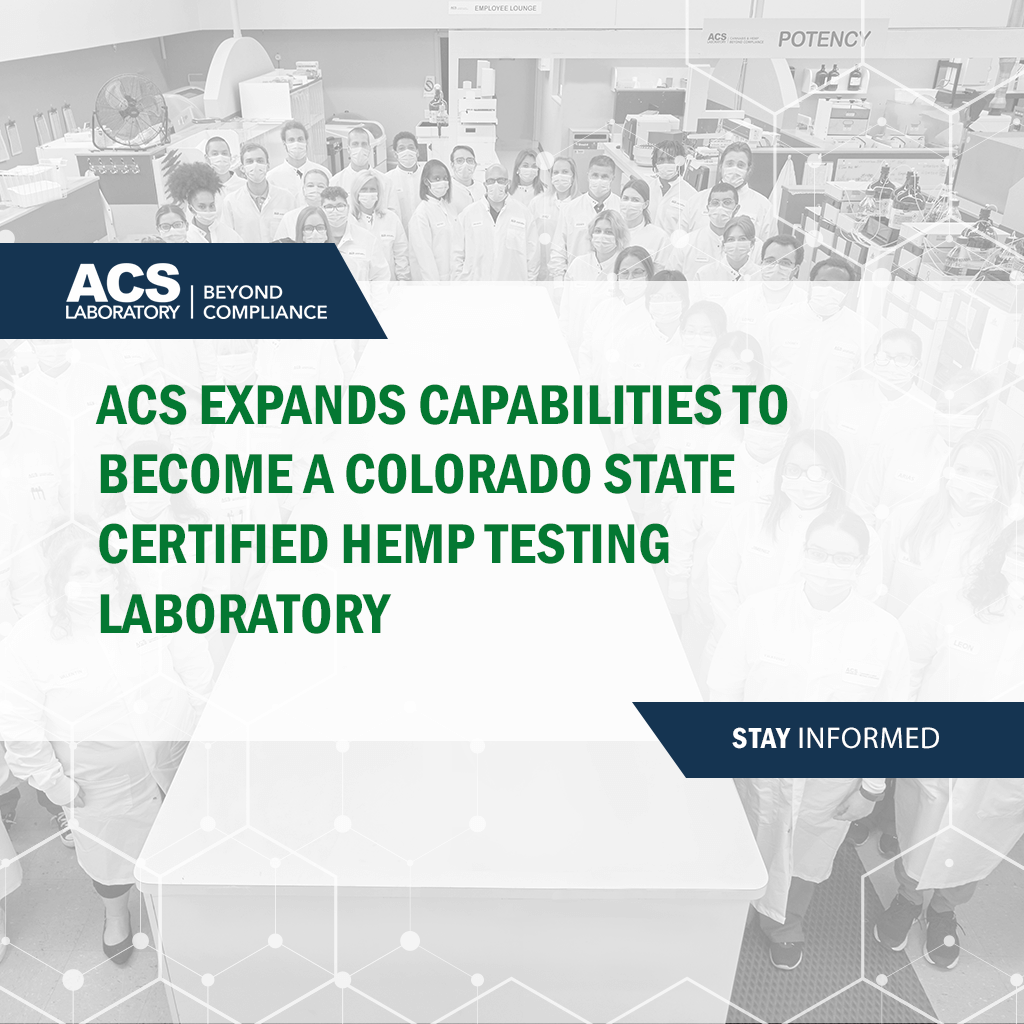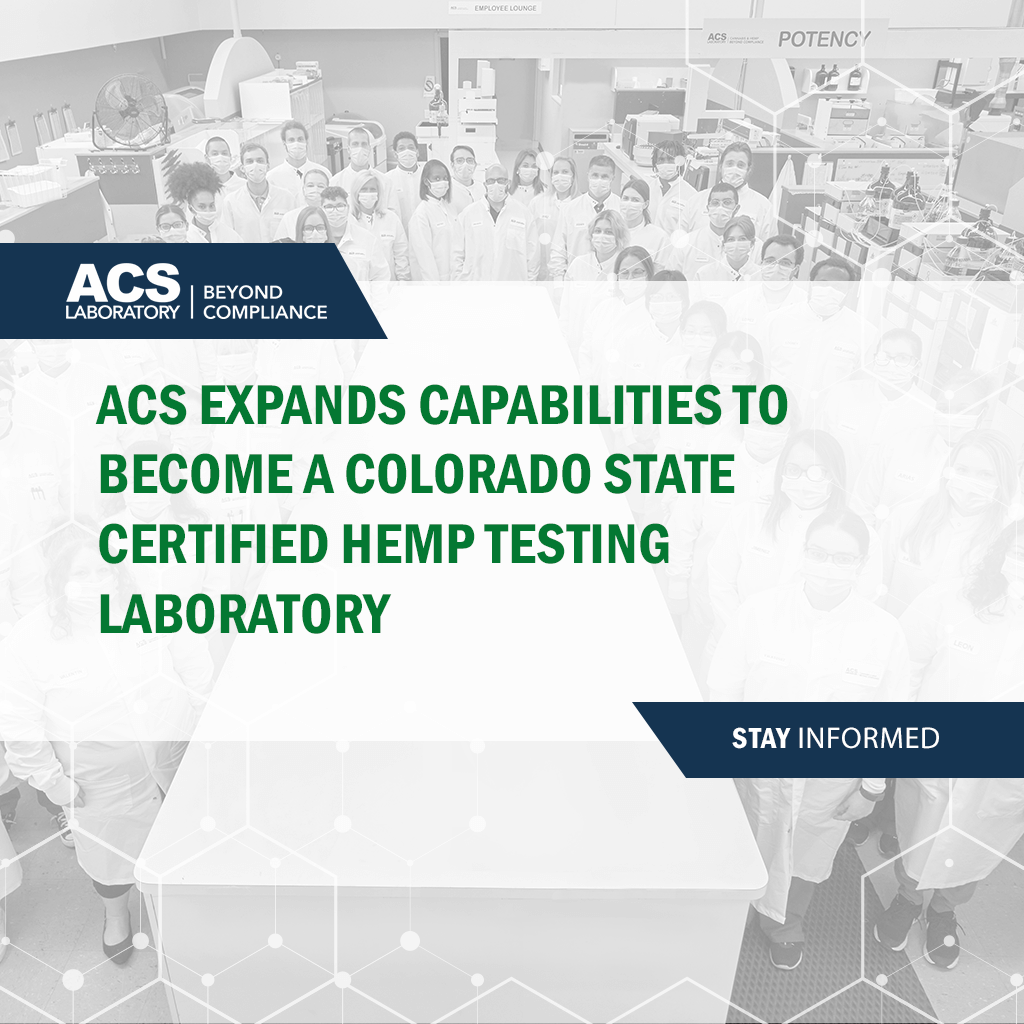Third-Party Testing: Why Full Panels Matter for Hemp, Cannabis, Kratom & Mushrooms
Third-Party Testing: Why Full Panels Matter for Hemp, Cannabis, Kratom & Mushrooms
- The Need for Full Panel Testing
- Full Panel Testing Explained
- Potency Testing: Active Ingredients, Terpenes & Flavonoids
- Bottom Line
Entheogens, or psychotropic plants, including hemp, cannabis, mushrooms, and kratom, demand rigorous lab analyses to prove they are compliant, effective, and safe to consume.
Potency tests are critical lab analyses because they determine the plant’s active ingredient concentration and psychoactive profile. However, potency tests only tell part of the story. Full panels, which also analyze pesticides, heavy metals, residual solvents (for derivatives), and bacteria residual solvents, paint a complete picture of the product’s quality and value. Comprehensive testing is the only way to build consumer trust and success in a competitive and uncertain regulatory market.
This article examines full-panel cannabis and entheogen testing and its critical place in the emerging plant industry.
The Need for Full Panel Testing
Full panel testing conducted by third-party laboratories establishes product safety, potency, quality, and compliance.
Every test is critical for different reasons related to each entheogenic plant or fungi, whether it be hemp, cannabis, kratom, psilocybin-containing mushrooms, Amanita muscaria, or functional mushrooms. But the bottom line is that brands that conduct full panels and publish their lab reports can confidently sell products nationwide without fear of regulatory infractions or consumer health risks. Rather, they can reap the market rewards from transparency, reliability, and a quality reputation.
ACS Laboratory provides a “Tested Safe Certified Seal” on the lab reports for all products that pass full panel tests, including:
- Hemp Extract
- Hemp Edibles
- Hemp Flower
- Cannabis Extract
- Cannabis Edibles
- Cannabis Flower
- Mushrooms
- Kratom

Brands utilize these seals on product packaging, webpages, and sales materials to inspire consumer trust and confidence.
Full Panel Testing Explained
Full panel testing is a comprehensive third-party approach that analyzes active ingredient potency, screens for potential contaminants, and determines whether extracts contain residual chemicals. Comprehensive hemp and cannabis tests also quantify synergistic compounds like terpenes and flavonoids.
Potency Testing measures the levels of active compounds, like THC in cannabis or psilocybin in mushrooms. Accurate potency measurement is vital for ensuring the product's effectiveness and for dosage guidelines.
Contaminant Testing looks for the presence of harmful substances that could degrade the product during cultivation, production, or storage. This includes pesticides, heavy metals, and residual solvents. For example, hemp and cannabis plants can absorb heavy metals from the soil, which can harm humans when ingested at high levels.
Microbial Testing checks for the presence of harmful microorganisms like bacteria, mold, and fungi. Since products like mushrooms are particularly susceptible to microbial contamination, this test is crucial to prevent the risk of infection or illness in consumers.
Residual solvent testing ensures that chemical solvents used during extraction have been effectively removed to safe levels, as they can be dangerous at high concentrations. This test is essential to ensure the purity and safety of the final product.
Terpene Testing: Terpenes are aromatic compounds in many plants, including cannabis and hemp. Testing for terpenes is vital as they contribute to the product's aroma and flavor and can enhance its therapeutic properties through the entourage effect.
Flavonoid Testing: Flavonoids are natural compounds that contribute to the product's sensory attributes and may work synergistically with other compounds in the formula.
Potency Testing: Active Ingredients, Terpenes & Flavonoids
Potency testing in full panel analysis is crucial in determining the levels of active compounds, known as alkaloids.
In hemp and cannabis, THC and CBD are the most prominent active ingredients (aka cannabinoids) that contribute to the plant’s psychoactive and wellness properties. But they’re far from the only significant alkaloids. ACS Laboratory’s cannabis potency tests quantify up to 30 cannabinoids using LCMS (Liquid Chromatography Mass Spectrometry). The lab also uses Ultra-High-Performance Liquid Chromatography (HPLC-UV) to test edibles and extracts because it can accurately quantify potency at room temperature without requiring a catalyst. This delicate method can even measure acidic precursors like THCA and CBDA.
For kratom potency testing, the focus is on mitragynine, but emerging research shows kratom leaves contain multiple alkaloids. ACS’ protocol assesses the concentration of eight principal kratom alkaloids so brands and consumers can understand precisely what the product contains and the factors contributing to the experience profile.
In psychedelic mushroom testing, the primary interest is in psilocybin and psilocin. ACS Laboratry’s Potency 9 test quantifies these compounds as well as psilocybin precursors, analogs, and derivatives that influence the psychedelic experience. The test also quantifies beta-carbolines, harmine, and harmane, which impact brain function and mood.
Amanita muscaria potency tests generally focus on ibotenic acid and muscimol, the mushroom’s main psychoactive compounds. However, ACS’ Amanita potency test also includes muscarine for a complete picture of the effect and safety profile.
Flavonoid and terpene profiling is often overlooked in third-party testing. However, ACS thinks this understanding is essential for product differentiation and consumer education. Flavonoids are a diverse phytonutrient group that deliver potent antioxidant and anti-inflammatory properties. Terpenes are aromatic compounds that determine cultivars’ distinct aromas and flavors. Research indicates that terpenes can even modulate the effects of cannabinoids like THC and CBD, impacting the overall efficacy and experience. ACS Laboratory profiles 16 flavonoids and 38 terpenes so brands can formulate products to match their consumers’ needs.
Need a Test or Have a Question
Contaminant Testing
Full panel tests screen for harmful substances, including microbial contaminants, pesticides, heavy metals, residual solvents, and mycotoxins. These impurities can enter the product at various stages, from cultivation, where pesticides and heavy metals from the soil can accumulate in the plant, to processing, where solvents and microbial contamination risks increase.
State regulations don’t always explicitly require brands to test for these analytes. But those who don’t risk selling ineffective or downright dangerous products.
- Microbial contaminants like bacteria and mold can cause serious infections, especially in immunocompromised individuals.
- Pesticides, often used in cultivation, can lead to a range of health problems, from acute toxicity to long-term effects like cancer.
- Heavy metals like lead and mercury, absorbed by the plant from the soil or introduced during processing, pose neurological and developmental risks.
- Residual solvents like butane used in the extraction process can cause respiratory and neurological problems.
- Mycotoxins produced by molds can cause serious lung harm and are known carcinogens, posing long-term health risks, including liver damage and immunosuppression.
Several examples highlight the importance of comprehensive purity tests tailored to the specific plant or product.
For instance, kratom has faced serious challenges with manganese contamination. This heavy metal, when present in excessive amounts, can lead to debilitating neurological damage, a grave concern for consumers' health.
Additionally, unsafe vape additives like Vitamin E acetate have caused widespread severe lung injuries, shaking consumer trust and emphasizing the need to test for this compound.
HHC (Hexahydrocannabinol) is another example. These products utilize metal catalysts to convert Delta-8 into HHC, and some accidentally fail to remove the impurities from the final formula.
Compliance with Regulations
Compliance testing is not required for every product type in every state. However, the FDA consistently sends warning letters to brands whose products they deem “unsafe.” Additionally, state regulators regularly pull products that contain controlled substances and dangerous additives off shelves. Brands can avoid accidentally creating harmful and illegal products by testing for a comprehensive list of contaminants and alkaloids.
ACS Laboratory’s Negative Psilocybin Compliance test is a prime example. The lab now analyzes Amanita muscaria extracts for psilocybin and psilocin to rule out the potential existence of these Schedule 1 substances.
Hemp products also require meticulous attention due to their unique legal status. After the USDA issued hemp potency testing rules, states like Florida, New York, Colorado, Pennsylvania, and Utah enacted their own with more stringent requirements. ACS Laboratory developed a National Hemp Compliance Panel based on these rules to ensure brands can confidently sell nationwide without worrying about varying regulations.
The National Hemp Compliance Panel covers cannabinoid potency, pesticides, residual solvents, heavy metals, microbiology, mycotoxins, moisture and water activity, terpene concentration, and flavonoid potency. This comprehensive approach reflects the highest standards, reducing brand liability risks and expanding market opportunities.
Bottom Line: Full Panel Testing Inspires Consumer Trust and Loyalty
In today's informed market, transparency is crucial. Brands that share their full panel lab reports openly show a commitment to quality and safety, providing reassurance about the purity and efficacy of their products. This action builds trust and cultivates loyalty among consumers who value brands prioritizing their well-being.
Detailed lab reports also educate consumers about the product's various aspects, including cannabinoid and terpene profiles and the absence of harmful contaminants. This knowledge empowers consumers to make informed choices, enhancing their faith in the brand.
Ultimately, sharing full panel lab reports is more than meeting regulatory standards; it's a strategic approach to building enduring relationships and enhancing market value.
Contact ACS Laboratory today to learn about full-panel third-party testing for your hemp, cannabis, mushroom, or kratom brand. Ask us about our no-fee license agreement that grants your brand the right to use our “Tested Safe Certified Seal” on your packaging, website, and retail location.










.png)
.png)
.png)
.png)
.png)